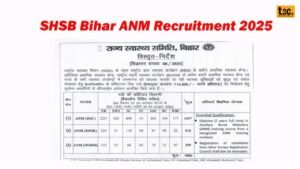Regulating the Power of Firearms: An Overview of Weapon Laws in India

Regulating the Power of Firearms: An Overview of Weapon Laws in India has been covered in this article. In India, the law regarding weapons is primarily governed by the Arms Act, 1959, and its associated rules. The primary purpose of this legislation is to regulate the manufacture, sale, possession, and use of firearms and ammunition, as well as to ensure public safety.
Here are key aspects of weapon-related laws in India:
1. Arms Act, 1959
The Arms Act, 1959 is the primary legislation governing the possession and use of firearms in India. This law covers both firearms and ammunition.
Key provisions:
- Licensing: A person must obtain a license to possess or carry firearms. The process of obtaining a license involves fulfilling specific criteria, including proving a genuine need (e.g., self-defense, sports), undergoing a background check, and meeting mental health standards.
- Categories of Firearms: The Act divides firearms into different categories:
- Prohibited Bore (PB): High-caliber weapons, generally reserved for law enforcement and military personnel, refer to this. Possession of these weapons is prohibited for civilians.
- Non-Prohibited Bore (NPB): These are generally smaller-caliber firearms, which civilians can possess, but only with a valid license.
- Prohibited Weapons: The government can detain individuals for up to a year without trial under the NSA if it finds them to be a threat to national security.
- Possession Without License: Possessing a firearm or ammunition without a valid license is a punishable offense under the Arms Act. The penalty can be imprisonment for up to 7 years or a fine, or both.
2. Arms Rules, 2016
These rules provide detailed procedures for implementing the provisions of the Arms Act, 1959. It includes:
- Application procedures for obtaining firearm licenses.
- Renewal process for licenses.
- Rules governing the storage and safe handling of weapons.
- Procedure for dealing with expired, surrendered, or confiscated firearms.
3. Firearm Licenses
To legally possess a firearm, a person must apply for a firearm license from the District Magistrate. The conditions for granting a license include:
- The applicant must be at least 21 years old.
- They must have a clean criminal record.
- The applicant should demonstrate a valid reason for needing the firearm (such as self-defense, sports, or agricultural purposes).
There are different types of licenses for different purposes, such as:
- Self-defense: A license for personal protection.
- Sports: A license for participation in shooting sports.
- Prohibited Bore: A special license for high-caliber weapons (rare for civilians).
4. Ban on Certain Firearms
Certain firearms are prohibited for civilians under the Arms Act, including automatic rifles, machine guns, and other military-grade weapons. The law does not allow civilians to possess weapons like AK-47s, Uzi submachine guns, etc.
5. Punishments and Offenses
- Illegal Possession: If a person is found in possession of firearms or ammunition without a valid license, they can be fined and face imprisonment of up to 7 years.
- Unlawful Use: Using a firearm in a criminal activity, such as committing a murder or robbery, can lead to life imprisonment or even the death penalty in some extreme cases.
- Tampering with Firearms: Altering or modifying a weapon without authorization is an offense, and the person can face legal consequences.
6. Special Laws and Acts
- Unlawful Activities (Prevention) Act (UAPA), 1967: This Act addresses terrorism and organized crime, and it has provisions that criminalize possession of weapons for unlawful purposes.
- National Security Act (NSA), 1980: The government can detain individuals for up to a year without trial under the NSA if it finds them to be a threat to national security. Possession of weapons used for such purposes can lead to detention under this law.
7. Restrictions on Sale and Purchase
The Arms Act regulates the sale and purchase of firearms and ammunition. Authorities can only sell firearms to individuals who have valid licenses, and they must record the sale in government registers. Unauthorized dealers or individuals selling firearms without proper licenses face severe penalties.
8. Use of Firearms by Security Personnel
Security agencies, police, and military personnel are authorized to use and carry firearms as part of their duty. However, the use of firearms by law enforcement is strictly regulated to prevent misuse, and there are specific guidelines and training to ensure their proper use.
9. Recent Developments
- Amendments to Arms Act: In recent years, the government has made amendments to the Arms Act to make the law stricter. For example, in 2019, the government introduced an amendment that sought to reduce the number of firearms that a civilian can possess from three to two.
- Terrorism Concerns: There has been an increasing emphasis on controlling firearms to combat terrorism. The government has imposed more regulations on the possession of firearms and ammunition to prevent the illegal trade and use of weapons by terrorists.
10. Weapons in Conflict Areas
In conflict zones like Jammu & Kashmir, the laws related to weapons can be even more stringent, and the Indian government has deployed additional restrictions under specific legal frameworks, such as the Armed Forces Special Powers Act (AFSPA).
Conclusion
The law surrounding weapons in India aims to prevent the misuse of firearms and maintain public safety. Authorities place strict controls on the possession, sale, and use of weapons, and they impose severe penalties for violations. Authorities allow civilians to possess weapons only under specific conditions and impose substantial restrictions on the types of firearms they can own. Thus, regulating the Power of Firearms: An Overview of Weapon Laws in India.
Stay tuned on our website as if any official information pops up then we will update you in minutes! If you want all the latest updates on time then join our student community on WhatsApp!
Choose the right career yourself by booking personal guidance from professionals on Mytagapp.com!









